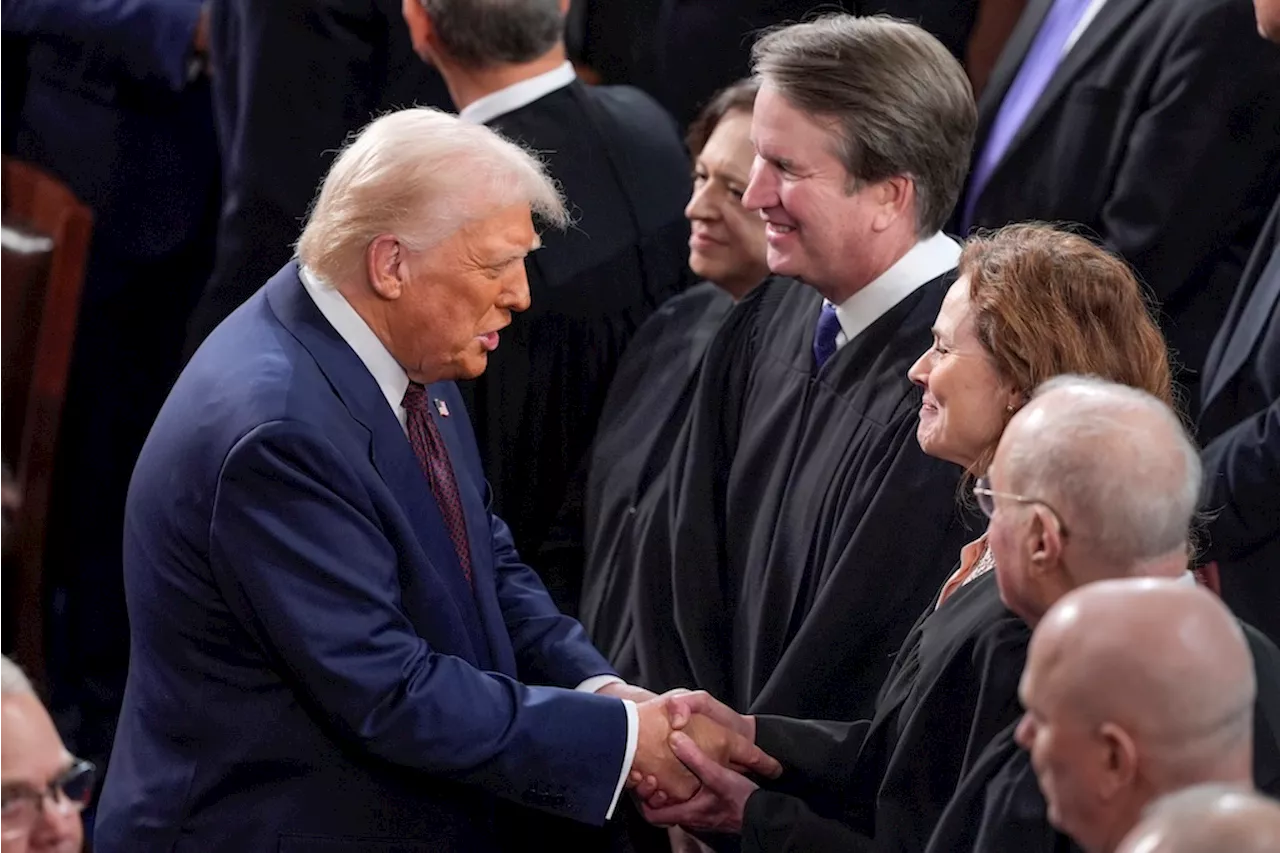The U.S. Supreme Court is poised to hear significant cases that could redefine President Donald Trump‘s tariff powers. As the Justice Department gears up to defend the administration’s policies, it faces a critical juncture that could see the end of its recent success at the high court. The justices are set to examine the legality of tariffs imposed by Trump under the International Emergency Economic Powers Act (IEEPA), following previous rulings that have not favored the administration.
This week marks the first major test for the Justice Department under Trump’s second term as the court hears arguments regarding his tariffs on imports from various countries. These tariffs have faced multiple legal challenges, including two losses in federal district courts and a ruling from the U.S. Court of Appeals for the Federal Circuit. The central issue will be whether Trump possesses the authority to levy tariffs under IEEPA, a matter that has sparked considerable debate among legal experts.
Legal analysts have noted that while the administration has successfully halted lower court injunctions through emergency petitions, it may not enjoy the same fortune moving forward. Since January, the administration has filed emergency requests with the Supreme Court 22 times, achieving at least partial victories in 19 instances. This pattern of success could be challenged as cases involving Trump’s agenda transition to the merits docket.
Solicitor General D. John Sauer has navigated the emergency docket effectively but faced a setback in May when the court paused the deportation of Venezuelan nationals under the Alien Enemies Act. Legal experts argue that the administration’s perceived “extreme success” in the emergency docket may stem from strategically choosing cases that align with their agenda and confidence in winning.
As the administration confronts lawsuits that advance to the Supreme Court, it may be less selective about which cases to pursue. Jonathan Adler, a professor at William & Mary Law School, emphasized the administration’s strategic approach, suggesting that it has only pursued a small fraction of cases that could have been brought to the high court.
The upcoming tariff case is particularly notable. Critics argue that the IEEPA does not explicitly grant tariff powers, as highlighted by Oliver Dunford, a senior lawyer with the Pacific Legal Foundation. Dunford pointed out that while the statute allows for regulation of importation, it does not specifically mention tariffs, raising questions about the legality of the president’s actions.
Pierce, a legal analyst, predicts that the chances of the administration prevailing in this case are slim due to the absence of explicit tariff authority in the IEEPA. The conservative majority of the court, known for their textualist interpretations, may find it challenging to support Trump’s position.
While the current tariff case may not favor the administration, Trump may find more favorable outcomes in future cases. One such case involves the president’s authority to dismiss Federal Trade Commission (FTC) commissioners, with the Justice Department arguing that Trump can fire executive agency heads without cause. The high court previously allowed such firings to proceed on three instances in the emergency docket, hinting at potential outcomes for the merits docket.
Additionally, the Justice Department has requested the Supreme Court to review a ruling that struck down Trump’s executive order limiting birthright citizenship. The administration has faced repeated legal challenges to this order since its introduction, with legal experts suggesting that it would be difficult for Trump to secure a favorable ruling from the court.
As the Supreme Court prepares to hear these consequential cases, the implications for Trump’s presidency and executive authority are immense. The court’s decisions could reshape the landscape of presidential powers, particularly concerning emergency declarations and tariff impositions. With ongoing legal challenges to Trump’s policies, this week’s hearings are just the beginning of what promises to be a contentious legal battle over the next three years.
